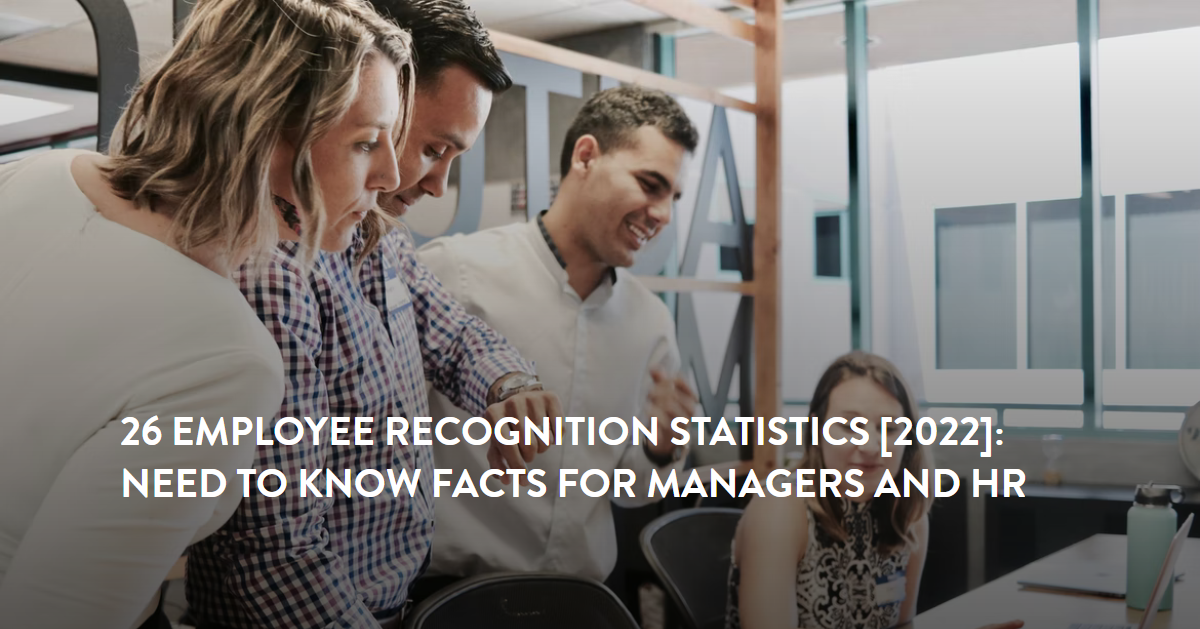- Office Etiquette
- Office Etiquette
- Dating A Coworker
- April Fools Pranks For Work
- How To Be A Good Employee
- Pet Peeves List
- How To Write A Project Proposal
- Qualities Of A Good Worker
- How To Get Along With Your Boss
- What Engaged Employees Do Differently
- What To Say Instead Of Sorry
- How To Send A Friendly Reminder Email
- How To End A Conversation
- Sorry For The Delay
- Tattoos In The Workplace
- Sorry For The Late Reply
- How To Respond To A Compliment
- New Employee
- How To Introduce Yourself Professionally
- Welcome New Employee Announcement
- Welcome Letter
- Thank You Note To Colleague
- 30/60/90 Plan
- Getting To Know You Questions
- Job Satisfaction
- Team Building Activities
- At Will Employment
- Company Culture
- Corporate Culture
- How To Succeed At Your New Remote Job
- How To Prepare For New Job Orientation
- How To Create An Employee Handbook
- Hostile Work Environment
- Hostile Work Environment
- How To Deal With A Difficult Coworker
- What Is Human Resource Development (HRD)?
- I Hate My Job
- Burnt Out At Work
- Condescending Coworker
- Sexual Harassment In The Workplace
- Work Environment
- My Job Sucks
- Favoritism At Work
- Respect In The Workplace
- Wagner Act
- Documentation In The Workplace
- Unconscious Bias
- Ageism
- What To Do When You Feel Unappreciated At Work
- How To Respond To A Warning At Work
- How To Deal With A Passive Aggressive Coworker
- What To Do When You're Unhappy At Work
- I Hate My Boss
- Gaslighting Boss
- Signs You're Underpaid
- Insubordination At Work
- Missing Work
- Communicating
- Send Retirement Wishes
- Write A Congratulations Email
- Professional Voicemail Greeting Examples
- Made A Mistake At Work
- Google Tricks
- Appeal Letter
- Employee Morale
- How To Write A Professional Email
- Out Of Office Message
- Small Group Icebreakers
- Memo Format
- Memo Examples
- Cell Phone At Work
- Meeting Minutes
- Communication Barriers
- How To Take Notes
- How To Brainstorm
- Ask For A Mental Health Day
- Transfer Request Letter And Email Examples
- How To Write A Business Proposal
- How To Deal With A Lazy Coworker
- How To Write A Rejection Letter
- How To Say No
- Scheduling
- Personal Goals
Find a Job You Really Want In
Dealing with difficult people in the workplace is a necessary evil when you’re in the workforce. At some point, personalities or working styles will clash, and you’ll have to find a way to deal with it.
Unfortunately, ignoring difficult people isn’t an option when it comes to your job. So, we’re going to walk you through how you should deal with a difficult person at work so you can resolve any issues and enjoy your time at work.
Key Takeaways:
-
Your conflict can be as small as office politics and cliques that make your time unenjoyable or it can be as big as not getting credit for your work, but either way, you need to address the conflict.
-
You should be able to reach out to your boss, the company’s human resources department, or other internal resources if you feel the need.
-
It’s important to have a conversation with your difficult coworker one-on-one and allows for better understanding since the person you’re talking to won’t feel ganged up on

How to Deal with a Difficult Coworker
-
Do some self-reflecting. While the issues you face with difficult people usually say more about them than about you, it’s a good idea to understand why you’re having a hard time dealing with this person in particular. Think about whether you usually respond like this and anger quickly, or if you’re justified in your response.
-
Maybe talking to an unbiased co-worker or friend can help you reflect more on the situation. Sometimes we just have bad days and little things upset us more than they should, so take a moment to think about your response before taking any action.
-
It’s also a good idea to reflect on your self-awareness and how you manage your emotions. Not only is managing your feelings a necessary life skill, but it will also help you when it comes time to deal with this toxic person verbally. If you can keep your emotions and reactions in check, you’ll come out looking like a strong and well-mannered person.
-
-
Understand the other person. As much as you need to understand your thoughts, emotions, and reactions, you should also consider the other person.
-
There might be a reason why they act the way they do, and there might not, but you should give it some thought. This will help you when it comes time to confront your colleague since you can guess what they’re going to say to you.
-
Think about how you may have caused your co-worked to treat you badly since they might be passive-aggressively responding to something you did that upset them. Either way, thinking about the other person’s perspective is an excellent way to prepare to talk to them.
-
-
Get some advice. You can bring your friends or other people into your dilemma either before or after you confront this problematic person, but getting a third opinion is always a good idea. It can help keep you from reacting badly or make sure you’re not so invested in the situation that you’re blind to your own behavior.
Your friend can also help you brainstorm ways to confront your office bully if you don’t feel comfortable thinking of it yourself. It’s always a good idea to have a different opinion regarding workplace disputes, so you don’t jeopardize your reputation in trying to resolve them.
-
Set your boundaries. Before your conversation with your co-worker, and even during, you should set boundaries.
-
Figure out what about their behavior upsets you and try to put it into words. It can be as simple as “please CC me on all emails you send to our manager” if they’re constantly going behind your back. If it’s really serious and you always disagree, make sure the two of you don’t have to work on a project together.
-
If you can nail down your personal boundaries before your conversation with your co-worker, it will make you stronger and ready to tackle the talk head-on. You can bring up these boundaries in the discussion and potentially have an office friend or boss make sure they’re enforced.
-
-
Start one-on-one. When you actually confront this difficult person, it should be in a one-on-one conversation.
-
This usually allows for better understanding since the person you’re talking to won’t feel ganged up on, and there won’t be the pressure of having other people listening to your personal problems. Even if other people know that you’re having this conversation, you don’t need to involve them in the first discussion.
-
If this conversation doesn’t go well, then it might be a good idea to bring more people into the discussion, like your boss or HR, next time.
-
When you’re having this conversation, try your best to use “I” statements (like “I don’t feel appreciated when you do this”) as opposed to “you” (like “you excluded me from the meeting”). This frames everything as your interpretations of a situation instead of blaming the other person for anything, keeping the conversation from getting hostile.
-
-
Be an active listener. This applies to both conversations with your difficult colleague and with your friends who are advising you. The most important thing you can do is be compassionate and listen to better understand the other person and find a solution together.
Even if you’re upset, you should let the other person talk and listen closely to what they say. You’re more likely to find some common ground this way. It’s also a good way to acknowledge your co-worker’s feelings if they, too, were hurt by the situation. That way, you can move past it together.
-
Set up a time to follow up. At the end of your first conversation, you should agree on a time to meet again and discuss any progress you made in your discussion.
-
It’s a great way to keep both of you accountable for moving forward so you can have a healthy working relationship.
-
This can be a good time to agree to bring a boss or another team member into your conversations if you feel like the first discussion didn’t get you anywhere.
-
Creating the time to talk again will keep you both accountable and thinking about how to improve your relationship.
-
-
Don’t be afraid to make it public. While you don’t want all of your office drama out there for all of your co-workers to know, it doesn’t hurt to be a little assertive and push back on this difficult person in public. If they don’t realize their actions are hurting you, making a gesture or a comment to say they’re behaving disrespectfully might work.
Don’t be overly obvious about it or try to rope other co-workers into your predicament, but publicly responding might encourage a different reaction from the difficult co-worker.
-
Prepare before talking to your boss. Bringing in your boss or management might be necessary if you don’t see any changes in this person’s behavior. If you do have to get other people in, do some preparation.
Take notes on your interactions with the problematic colleague, see if any of your other co-workers have experienced similar incidents with this person, and have your boundaries ready to explain. The more you can have ready for this meeting, the more productive and fruitful it can be.
-
Stay calm. Overall, the best tip we can give you when dealing with workplace conflict is to stay calm. It’s essential to hold your ground and maintain your professionalism, but you can’t do either of those without staying calm.
When dealing with difficult people, it can be easy to get heated and upset. Still, if you can maintain your composure, you’ll look rational, professional, and collected, even if your difficult co-worker doesn’t.
Why You Must Deal with Difficult People
There will always be people in your workplace that are a nightmare to work with. Not everyone has compatible working styles or personalities, so it’s bound to happen at some point.
Since you’ll be running into multiple people who bother you during your career, it’s a good idea to learn how to deal with them head-on instead of letting issues simmer.
-
It’s impossible to ignore some office disagreements or frustrations, and the longer you wait to address them, the more likely it is that they’ll come back to haunt you. If you don’t deal with the issue or the person causing the problem, it’s like leaving a pot on simmer. Eventually, the tension will boil over, and it might cause you to act unprofessionally or in a way you didn’t mean.
-
you don’t want to immediately respond to a situation that’s upset you because you might lash out before you have time to cool off. You’ll want to stay professional, and reacting immediately could cause more issues if you’re upset. It’s important to think things through when dealing with an unfriendly colleague, so try not to respond in the moment, but don’t take months to address the issue either.
-
Dealing with difficult people is also a must since you don’t want to be stuck replaying a conversation or an event that upset you for months. That could earn you a bad reputation as a complainer or a negative person.
-
If things get out of hand, your boss or other management could identify you as someone who’s difficult to work with. It could reflect poorly on you instead of the person who’s mistreating you.
-
Even if being confrontational is not your style, you need to speak out against any unfair treatment from difficult people at work. It’s not fair to you to be treated like that, and the situation won’t go away unless you take action.
- Office Etiquette
- Office Etiquette
- Dating A Coworker
- April Fools Pranks For Work
- How To Be A Good Employee
- Pet Peeves List
- How To Write A Project Proposal
- Qualities Of A Good Worker
- How To Get Along With Your Boss
- What Engaged Employees Do Differently
- What To Say Instead Of Sorry
- How To Send A Friendly Reminder Email
- How To End A Conversation
- Sorry For The Delay
- Tattoos In The Workplace
- Sorry For The Late Reply
- How To Respond To A Compliment
- New Employee
- How To Introduce Yourself Professionally
- Welcome New Employee Announcement
- Welcome Letter
- Thank You Note To Colleague
- 30/60/90 Plan
- Getting To Know You Questions
- Job Satisfaction
- Team Building Activities
- At Will Employment
- Company Culture
- Corporate Culture
- How To Succeed At Your New Remote Job
- How To Prepare For New Job Orientation
- How To Create An Employee Handbook
- Hostile Work Environment
- Hostile Work Environment
- How To Deal With A Difficult Coworker
- What Is Human Resource Development (HRD)?
- I Hate My Job
- Burnt Out At Work
- Condescending Coworker
- Sexual Harassment In The Workplace
- Work Environment
- My Job Sucks
- Favoritism At Work
- Respect In The Workplace
- Wagner Act
- Documentation In The Workplace
- Unconscious Bias
- Ageism
- What To Do When You Feel Unappreciated At Work
- How To Respond To A Warning At Work
- How To Deal With A Passive Aggressive Coworker
- What To Do When You're Unhappy At Work
- I Hate My Boss
- Gaslighting Boss
- Signs You're Underpaid
- Insubordination At Work
- Missing Work
- Communicating
- Send Retirement Wishes
- Write A Congratulations Email
- Professional Voicemail Greeting Examples
- Made A Mistake At Work
- Google Tricks
- Appeal Letter
- Employee Morale
- How To Write A Professional Email
- Out Of Office Message
- Small Group Icebreakers
- Memo Format
- Memo Examples
- Cell Phone At Work
- Meeting Minutes
- Communication Barriers
- How To Take Notes
- How To Brainstorm
- Ask For A Mental Health Day
- Transfer Request Letter And Email Examples
- How To Write A Business Proposal
- How To Deal With A Lazy Coworker
- How To Write A Rejection Letter
- How To Say No
- Scheduling
- Personal Goals





